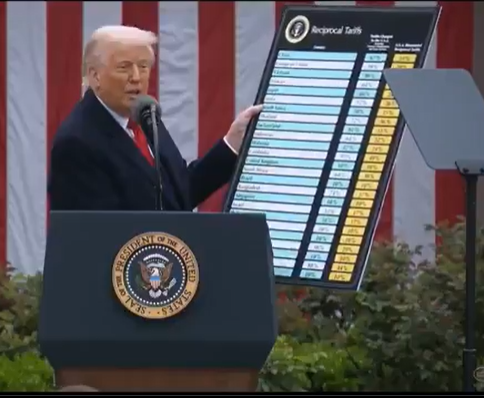Cape Town – The South African Parliament has voiced deep concern over a sweeping 30% tariff imposed by the United States on key South African exports, warning of severe consequences for jobs, industry and economic stability.
In a strongly worded statement issued on Tuesday, the Chairperson of the Select Committee on Economic Development and Trade, Sonja Boshoff, said the tariff, signed into effect by US President Donald Trump on July 7, will hurt strategic sectors such as citrus, macadamia, steel, aluminium and automotive components — industries she described as “lifelines” for tens of thousands of South Africans, especially in rural and small-town areas.
“These industries are not abstract economic indicators; they are sources of livelihood for real people. The citrus industry alone supports more than 35,000 jobs and contributes over R38 billion to the economy annually. A tariff of this magnitude threatens not only exporter profitability but also the economic stability of entire regions,” Boshoff said.
The tariff order is set to come into effect on 1 August 2025 and follows the US government’s recent withdrawal of grant funding for critical programmes in South Africa.
While no formal explanation has been given by the White House, the timing has sparked speculation over growing diplomatic tensions between the two countries.
Boshoff also warned that the tariff move undermines the long-standing African Growth and Opportunity Act (AGOA), which provides preferential access for African exports to the US.
“The new duties effectively erase those preferences. Producers can’t plan or invest under a cloud of unpredictability,” she said.
The committee urged the Department of Trade, Industry and Competition (DTIC) to expedite negotiations with Washington, reportedly involving an offer of strategic liquefied natural gas (LNG) procurement in exchange for a softer tariff regime. However, Boshoff stressed that any such talks must be “swift, transparent and rooted in the national interest.”
“We cannot afford diplomatic dithering. Each day of delay deepens the uncertainty for exporters. A sustainable trade path with the US must be finalised urgently while also accelerating diversification into alternative markets across the EU, Asia and the African continent,” she added.
The committee also called on both the DTIC and the Department of Agriculture to roll out support packages for the most affected sectors. Recommendations include export financing, logistics relief, and new market access strategies—especially for emerging farmers and small enterprises.
“At a time when South Africa is facing record-high unemployment and sluggish economic growth, punitive measures by a major trading partner are not just economic challenges—they risk entrenching inequality,” said Boshoff. “This is not a moment for complacency.”
She further called on the government to dispatch a high-level diplomatic delegation to Washington to repair strained ties and reaffirm South Africa’s commitment to constructive international engagement.
The tariff order, which applies to all South African goods entering the US market, has cast a long shadow over bilateral relations and economic prospects, with less than a month before implementation. Boshoff concluded by urging government and stakeholders to act “with urgency, precision and policy agility” to protect jobs and maintain South Africa’s global trade standing.
Follow African Insider on Facebook, X and Instagram
Picture: Screengrab
For more African news, visit Africaninsider.com
Compiled by Betha Madhomu


